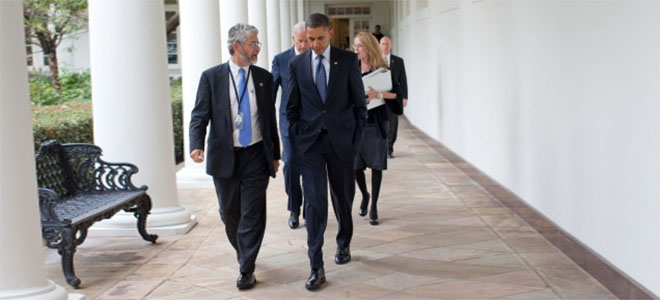 Government science advice: where are the honest brokers?
Government science advice: where are the honest brokers?
The Guardian, August 26, 2014
by Roger Pielke, Jr.
Scientific and political leaders need to focus more attention on the integrity of advisory processes, rather than taking sides in the political battles of the day
Complaints about the state of scientific advice to governments are commonplace. Yet, willingly or unwillingly, science advisors often find themselves participating in the unhealthy politicisation of advice. If the practice of science advice is to improve, scientific leaders in and outside government will have to show a deeper commitment to strengthening institutions of scientific advice. This means that some scientific leaders should step back from the political battles of the day.
For instance, Ann Glover, chief scientific adviser to the president of the European Commission, recently complained that politicians often seek out scientific advice to support a particular agenda. She said politicians routinely ask their experts to, “Find me the evidence that demonstrates that this is the case.”
Not long ago, Glover found herself in some hot water with her boss, José Manuel Barroso. Glover frequently comments on the relative safety of genetically modified crops. Last year, amid intense debate over technologies of crop genetics, President Barroso felt compelled to issue a statement distancing the Commission from Glover’s remarks: “The CSA has a purely advisory function and no role in defining Commission policies. Therefore, her views do not necessarily represent the views of the Commission.”
Glover argues that she is just discussing science: “I need to focus on evidence and not on political considerations.” But in practice, there is no easy way to separate science and politics on such contested issues. As Dan Sarewitz observes, “politics can isolate values from facts no more than science can isolate facts from values.”
This lesson was driven home in 2009 when David Nutt, chair of the UK government’s Advisory Council on the Misuse of Drugs, was sacked for comments that he made on the comparative risks of some illegal recreational drugs. Alan Johnson, the UK home secretary who notified Nutt of his dismissal, explained that “it is important that the government’s messages on drugs are clear and as an adviser you do nothing to undermine public understanding of them.”
Science advisers are ultimately creatures of politics. They serve at the pleasure of politicians. As part of government they are responsible for supporting policy implementation, just like any political appointee or civil servant. By virtue of their position, they do not have free rein to opine.
In the US we recently saw a different dynamic. Last January, John Holdren, President Obama’s science adviser, posted a video on the White House website suggesting that the so-called “polar vortex” of bitter winter weather was a consequence of human-caused climate change. An advocacy group opposed to the President’s climate agenda challenged the claim under US law on data quality in federal agencies. The White House responded to the challenge by explaining that Holdren’s remarks were not subject to the law because they were merely an expression of his “personal opinion” and “not a recitation of the scientific literature”.
These vignettes are representative: the politicisation of the science advisory process can come from politicians or it can come from the advisers themselves. Politicians would prefer that their advisers not raise uncomfortable issues, even if they are factually well-grounded. Yet, politicians seem not to mind when their advisers go out on a thin scientific limb if the views expressed are politically expedient. Read more …

